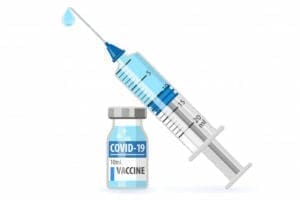Vaccination and Medical Treatment of Children – What Do You Do When One Parent Objects?
Vaccination of children and other medical treatments may raise controversy if one of the parents objects to the treatment. Such an objection may well lead to a legal dispute. What are the available solutions? How do the courts address this issue? These important questions are discussed below by a family lawyer from our firm.
Our law offices in Jerusalem and Tel Aviv specialize in family law. Our lawyers have extensive proven experience in providing clients with legal assistance and representing them in disputes regarding child custody, decisions about treatments for children, child support claims, mediation procedures, and more.
Common Dilemmas Regarding Vaccination and Medical Treatment of Children When Parents Disagree About What to Do
Child and infant vaccines have recently returned to the agenda after the breakthrough in developing coronavirus vaccines. As of the time of writing (early 2021), these vaccines have not yet been approved for minors. Nevertheless, a hot debate has already broken out between parents with differing opinions about vaccinating their children. This is a legally complex issue, especially in cases of disagreement between parents – that is, when one parent objects to having their children vaccinated or receive some other medical treatment.
It often happens that one parent objects to giving their child a vaccine or medical treatment, while the other parent insists on giving it. The question of whether to vaccinate or provide a certain medical treatment for the children is common (and contentious) especially among separated parents, and may serve as a real battering ram between them. There may be various reasons for a parent’s objection. One main reason is ideology or personal beliefs against vaccination or certain medical treatments. Sometimes religious beliefs are the reason; for example, those who belong to “Jehovah’s Witnesses” usually refuse to accept or give a blood transfusion, even in life-saving cases.
What Does the Law Have to Say On the Matter?
The main Israeli law that deals with the issue of resolving disputes between parents about vaccination and medical treatment of children is called the Legal Capacity and Guardianship Law. This law stipulates that, when surgery or other medical procedures are required for minors, the court shall rule in favor of performing them only if the court is convinced that the procedures are required for the physical or mental health of the minors in question, subject to a medical opinion that supports this decision. That is, if parents cannot come to an agreement on the subject, they may take the case to court for a decision.
How Do the Courts Address the Issue of Giving Children Vaccinations and Other Medical Treatments?
The child’s best interest is the guiding principle in such decisions. If it is discovered that a certain vaccination or medical treatment is being sought for the benefit of the children, the court will tend to rule in favor of the treatment even if one of the parents objects. However, it is important to know that the court does not replace medical authority. Accordingly, the parents will be required to present a medical opinion that supports their stance. The court is also empowered to appoint its own medical expert for an opinion so that it may reach a decision on the matter.
In a ruling from 2019, the Tel Aviv regional court ordered that two minor children should be vaccinated against the measles against the will of the mother, who was anti-vax. The court ruled that, since measles shots have, for decades, been used routinely and approved by the Ministry of Health, there is no need for a medical opinion to approve each and every case of giving a routine vaccine or other routine medical treatment. An appeal to the Supreme Court against the decision was denied. The Supreme Court stated in its ruling that it accepts the decision of the regional court as is.
A different ruling was issued in another case, which concerned giving a tetanus (lockjaw) vaccination to a minor who was injured. The Nazareth regional court accepted the position of the parents who refused to vaccinate the child. The court was convinced that too much time had passed since the injury for the vaccine to be effective. This shows that there are various considerations that influence the court decision, and, in some cases, the court may decide against giving a vaccination or other medical treatment if it is convinced that the treatment is unnecessary.
Contact a Family Lawyer
In conclusion, vaccination and other medical treatment of children often provoke legal controversy between parents. This may be resolved by going to court, or by alternative means of resolving disputes, such as mediation. For any additional questions you may have or assistance you may need, you are welcome to contact our law offices. We specialize in family law and help parents and families with a wide variety of legal issues.
מאמרים מומלצים


